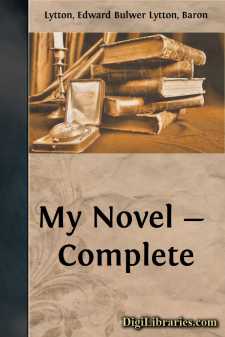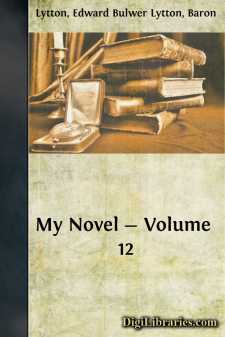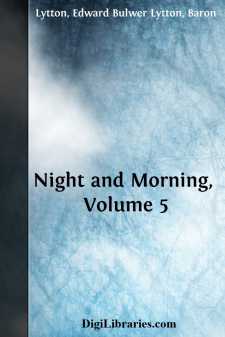Categories
- Antiques & Collectibles 13
- Architecture 36
- Art 48
- Bibles 22
- Biography & Autobiography 813
- Body, Mind & Spirit 142
- Business & Economics 28
- Children's Books 17
- Children's Fiction 14
- Computers 4
- Cooking 94
- Crafts & Hobbies 4
- Drama 346
- Education 46
- Family & Relationships 57
- Fiction 11829
- Games 19
- Gardening 17
- Health & Fitness 34
- History 1377
- House & Home 1
- Humor 147
- Juvenile Fiction 1873
- Juvenile Nonfiction 202
- Language Arts & Disciplines 88
- Law 16
- Literary Collections 686
- Literary Criticism 179
- Mathematics 13
- Medical 41
- Music 40
- Nature 179
- Non-Classifiable 1768
- Performing Arts 7
- Periodicals 1453
- Philosophy 64
- Photography 2
- Poetry 896
- Political Science 203
- Psychology 42
- Reference 154
- Religion 513
- Science 126
- Self-Help 84
- Social Science 81
- Sports & Recreation 34
- Study Aids 3
- Technology & Engineering 59
- Transportation 23
- Travel 463
- True Crime 29
Sort by:
CHAPTER I. Ou peut-on etre mieux qu'au sein de sa famille?—French Song. [Where can on be better than in the bosom of one's family?] I am an only child. My father was the younger son of one of our oldest earls; my mother the dowerless daughter of a Scotch peer. Mr. Pelham was a moderate whig, and gave sumptuous dinners; Lady Frances was a woman of taste, and particularly fond of diamonds and...
more...
THE IDEAL WORLD I. THE IDEAL WORLD,—ITS REALM IS EVERYWHERE AROUND US; ITS INHABITANTS ARETHE IMMORTAL PERSONIFICATIONS OF ALL BEAUTIFUL THOUGHTS; TO THAT WORLD WEATTAIN BY THE REPOSE OF THE SENSES. AROUND "this visible diurnal sphere"There floats a World that girds us like the space;On wandering clouds and gliding beams careerIts ever-moving murmurous Populace.There, all the lovelier...
more...
I. O'er royal London, in luxuriant May,While lamps yet twinkled, dawning crept the day.Home from the hell the pale-eyed gamester steals;Home from the ball flash jaded Beauty's wheels;The lean grimalkin, who, since night began,Hath hymn'd to love amidst the wrath of man,Scared from his raptures by the morning star,Flits finely by, and threads the area bar;From fields suburban rolls the...
more...
CHAPTER XXVIII. There is that in a wedding which appeals to a universal sympathy. No other event in the lives of their superiors in rank creates an equal sensation amongst the humbler classes. From the moment the news that Miss Jemima was to be married had spread throughout the village, all the old affection for the squire and his House burst forth the stronger for its temporary suspension. Who could...
more...
INITIAL CHAPTER —SHOWING HOW MY NOVEL CAME TO BE WRITTEN. Scene, the hall in UNCLE ROLAND'S tower; time, night; season, winter. MR. CAXTON is seated before a great geographical globe, which he is turning round leisurely, and "for his own recreation," as, according to Sir Thomas Browne, a philosopher should turn round the orb of which that globe professes to be the representation and...
more...
CHAPTER XXI. Randal's mind was made up. All he had learned in regard to Levy had confirmed his resolves or dissipated his scruples. He had started from the improbability that Pesehiera would offer, and the still greater improbability that Peschiera would pay him, L10,000 for such information or aid as he could bestow in furthering the count's object. But when Levy took such proposals entirely...
more...
CHAPTER XV. The entrance of a servant, announcing a name which Harley, in the absorption of his gloomy revery, did not hear, was followed by that of a person on whom he lifted his eyes in the cold and haughty surprise with which a man much occupied greets and rebukes the intrusion of an unwelcome stranger. "It is so long since your Lordship has seen me," said the visitor, with mild dignity,...
more...
CHAPTER XVII. When the scenes in some long diorama pass solemnly before us, there is sometimes one solitary object, contrasting, perhaps, the view of stately cities or the march of a mighty river, that halts on the eye for a moment, and then glides away, leaving on the mind a strange, comfortless, undefined impression. Why was the object presented to us? In itself it seemed comparatively insignificant....
more...
CHAPTER I. "Per ambages et ministeria deorum."—PETRONTUS. [Through the mysteries and ministerings of the gods.] Mr. Roger Morton was behind his counter one drizzling, melancholy day. Mr. Roger Morton, alderman, and twice mayor of his native town, was a thriving man. He had grown portly and corpulent. The nightly potations of brandy and water, continued year after year with mechanical...
more...
Much has been written by critics, especially by those in Germany (the native land of criticism), upon the important question, whether to please or to instruct should be the end of Fiction—whether a moral purpose is or is not in harmony with the undidactic spirit perceptible in the higher works of the imagination. And the general result of the discussion has been in favour of those who have contended...
more...











